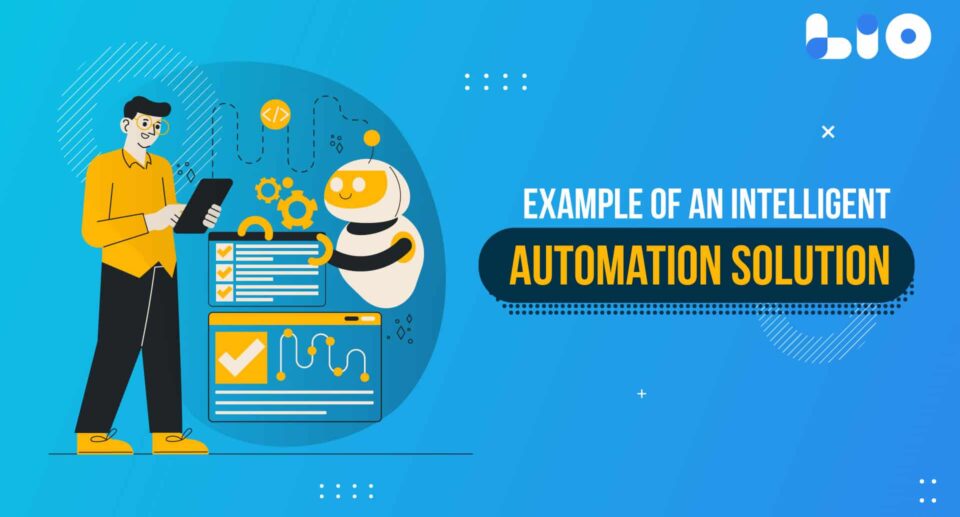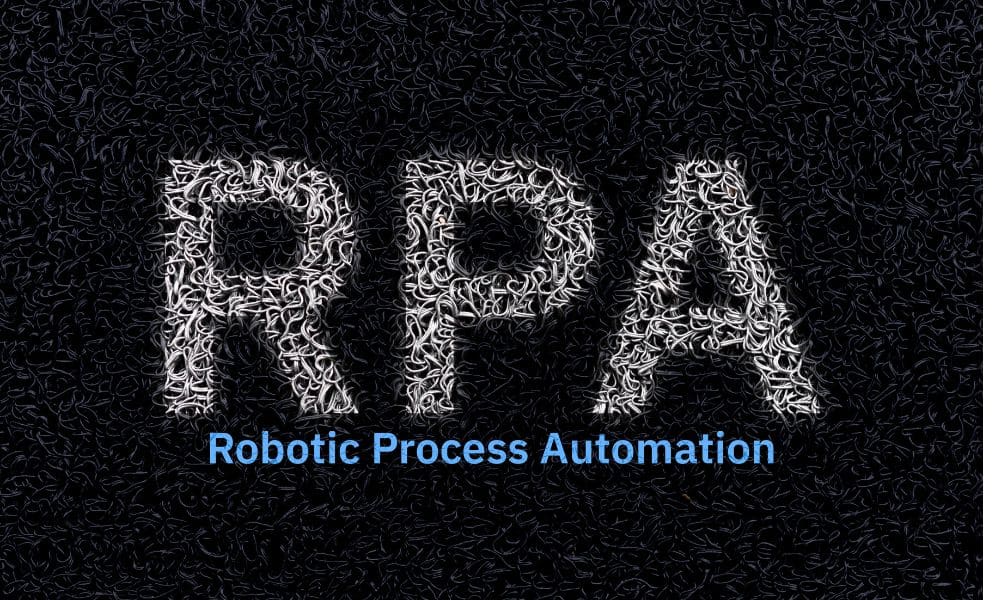What is an Example of an Intelligent Automation Solution – A Guide

Want to know an example of an Intelligent Automation Solution? Let us read the article to know everything about it and more.
In recent years, the concept of intelligent automation has gained popularity in the business world. Intelligent automation refers to the use of advanced technologies such as artificial intelligence (AI) and machine learning (ML) to automate and streamline business processes.
An intelligent automation solution can help organizations reduce costs, improve efficiency, and enhance customer experience. In this article, we will explore an example of an intelligent automation solution and how it can benefit organizations.
An Example of an Intelligent Automation Solution: Robotic Process Automation (RPA)

Robotic process automation (RPA) is an example of an intelligent automation solution that is gaining widespread adoption in the business world. RPA is a technology that allows organizations to automate repetitive and mundane tasks, such as data entry and processing, by using software robots that can mimic human actions.
RPA can be applied to various business processes, including finance and accounting, human resources, and customer service.
Benefits of RPA
Here are some of the benefits of RPA that you must know about.
Increased Efficiency
RPA can automate repetitive tasks, freeing up human workers to focus on more complex tasks that require human skills. This can increase efficiency and productivity, reducing the time it takes to complete tasks.
Cost Reduction
By automating repetitive tasks, organizations can reduce the costs associated with hiring and training employees to perform those tasks. Additionally, RPA can reduce the risk of errors that may lead to costly rework.
Improved Customer Experience
RPA can help organizations improve customer experience by reducing the time it takes to complete tasks such as processing orders or responding to customer inquiries. This can lead to increased customer satisfaction and loyalty.
Scalability
RPA can be easily scaled up or down to meet changing business needs. Organizations can quickly add or remove software robots as needed, allowing them to adjust to changes in demand or business priorities.
Challenges of RPA
Now let us now look at some of the challenges of RPA.
Integration with Legacy Systems
One of the challenges of implementing RPA is integrating it with existing legacy systems. This may require significant time and resources to ensure that RPA can communicate effectively with legacy systems.
Limited Capabilities
While RPA can automate many repetitive tasks, it may not be suitable for more complex tasks that require decision-making or problem-solving skills. Organizations may need to use other advanced technologies such as AI or ML to automate more complex tasks.
Maintenance and Upgrades
RPA requires ongoing maintenance and upgrades to ensure that software robots continue to function properly. Organizations may need to invest in resources to manage and maintain their RPA solutions.

Maximize Your Online Business Potential for just ₹79/month on Lio. Annual plans start at just ₹799.
How Lio can Help You?
To make your dreams come true of having a business of your own and managing it nicely, Lio App can help you big time. The app lets you keep all sorts of data together in a more organized manner. You can keep records, and create tables and lists while working solo or with a team.
The many features of Lio would help you with your retail business as you would be able to maintain all data on a track that you can use at any time. If you want to upload a document, then you can do that. Know the money transactions, cash inflow, profit and loss you are making, Udhaar, list of products, services, and even the teammates and clients that you have all in one place.
Your retail business ideas will certainly become successful businesses if you go on this journey of managing your business with Lio.
Step 1: Select the Language you want to work on. Lio on Android

Step 2: Create your account using your Phone Number or Email Id.

Verify the OTP and you are good to go.
Step 3: Select a template in which you want to add your data.

Add your Data with our Free Cloud Storage.
Step 4: All Done? Share and Collaborate with your contacts.

Conclusion
Robotic process automation is an example of an intelligent automation solution that can help organizations automate repetitive and mundane tasks, reducing costs, improving efficiency, and enhancing customer experience. While there are challenges associated with implementing RPA, the benefits of this technology make it an attractive solution for many organizations.
Frequently Asked Questions (FAQs)
How does RPA differ from traditional automation solutions?
Traditional automation solutions are often designed to automate specific tasks or processes, while RPA can automate a wider range of tasks by using software robots that can mimic human actions.
What industries are adopting RPA?
RPA is being adopted by a wide range of industries, including finance and accounting, healthcare, manufacturing, and customer service.
Can RPA be used to automate complex tasks?
RPA is best suited for automating repetitive and rule-based tasks. More complex tasks that require decision-making or problem-solving skills may require the use of other advanced technologies such as AI or ML.
What are some industries that can benefit the most from intelligent automation solutions?
Industries that can benefit from intelligent automation are manufacturing, healthcare, finance, and retail.
How can an organization determine if an intelligent automation solution is a good fit for their business needs?
Organizations can determine the fit of an intelligent automation solution by assessing their processes, ROI, impact on the workforce, and budget, and by working with a trusted vendor.







